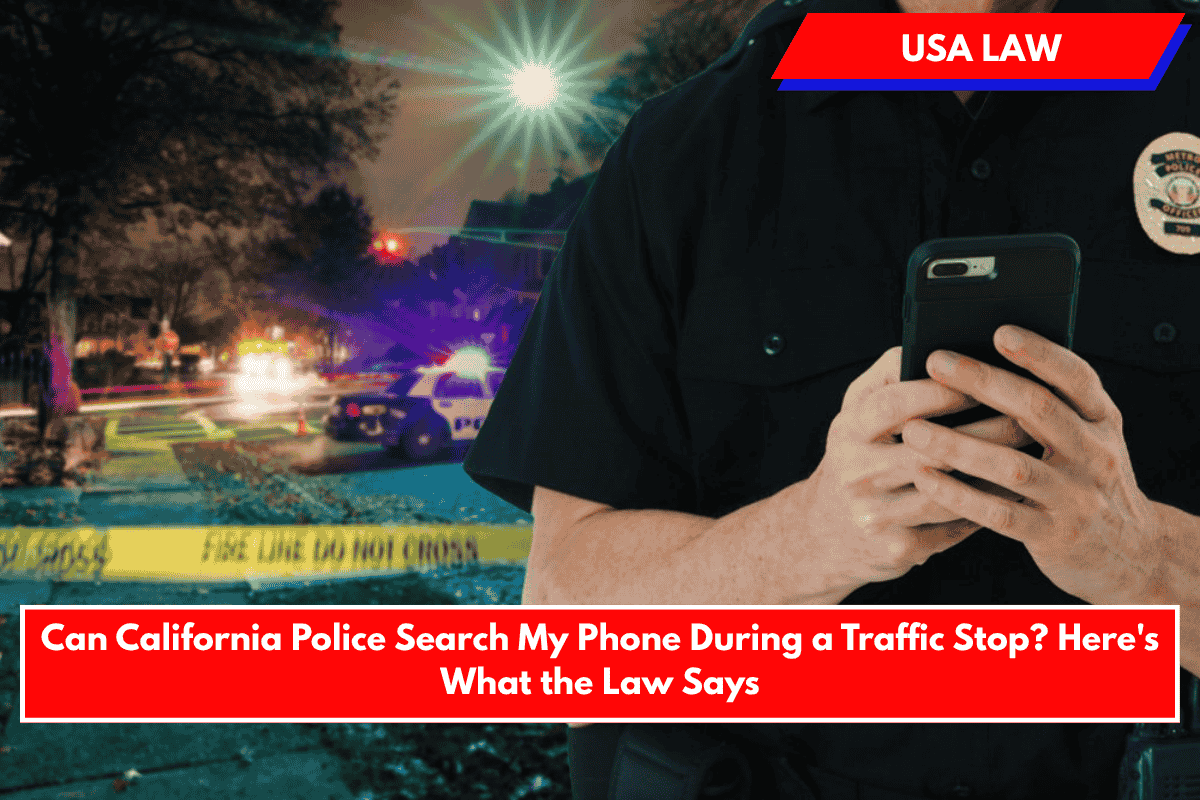In most situations, California police cannot search your phone during a traffic stop without a warrant. The law is clear and is rooted in both state and federal constitutional protections, as well as a landmark U.S. Supreme Court decision.
Key Points
- Warrant Requirement:
Police generally need a valid search warrant to access the data on your cell phone, even if you are under arrest during a traffic stop. This requirement was established by the U.S. Supreme Court in Riley v. California (2014), which held that searching a phone is not the same as searching other physical items and thus requires a warrant. - Consent:
If you voluntarily and freely give consent to a search, police may search your phone without a warrant. However, your consent must not be coerced or obtained through threats or deception. - Exigent Circumstances:
Police may search your phone without a warrant if there are “exigent circumstances.” This means there must be an immediate need—such as preventing imminent danger, destruction of evidence, or the escape of a fleeing suspect. However, courts have set a high bar for what qualifies as exigent, and this exception is rarely applied in routine traffic stops. - Probation or Parole:
If you are on probation or parole, and your terms include warrantless searches, police may be able to search your phone without a warrant. - Seizure vs. Search:
Even if police cannot search your phone without a warrant, they may seize (take possession of) your phone and hold it while they apply for a warrant.
What Should You Do If Asked?
- You have the right to refuse consent. Politely decline if an officer asks to search your phone. If you consent, anything found may be used as evidence against you.
- Do not unlock your phone or provide your password. Police cannot force you to provide your password or unlock your phone, as this is protected under the Fifth Amendment right against self-incrimination.
Table
| Situation | Can Police Search Your Phone? |
|---|---|
| With a valid search warrant | Yes |
| With your voluntary consent | Yes |
| If you are on probation/parole | Sometimes (if terms allow) |
| Exigent circumstances | Rarely, only if urgent |
| Routine traffic stop (no warrant) | No |
Legal Precedent
“Our answer to the question of what police must do before searching a cell phone seized incident to an arrest is accordingly simple—get a warrant.”
— Chief Justice John Roberts, Riley v. California (2014)
During a traffic stop in California, police cannot search your phone without a warrant unless you give consent, are on probation/parole with search terms, or there are rare exigent circumstances. You have the right to refuse a search and should not provide your password or unlock your phone if asked.
Sources
- https://www.shouselaw.com/ca/defense/search-and-seizure/phone-searches/
- https://www.egattorneys.com/cellphone-searches-in-california
- https://www.patrickjmclain.com/blog/2024/october/cell-phone-searches-and-the-fourth-amendment/
- https://www.criminaldef.com/library/riley-v-california-search-warrant-required-to-search-cell.cfm
- https://epic.org/documents/riley-v-california-2/











